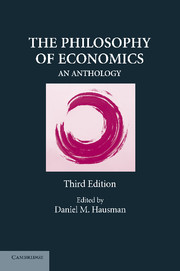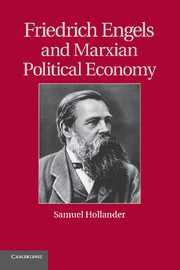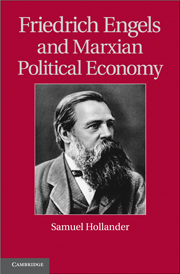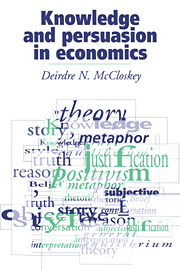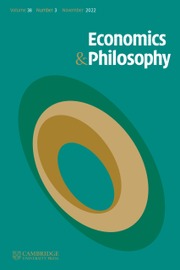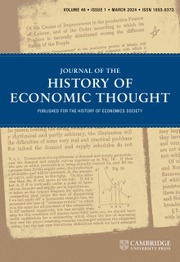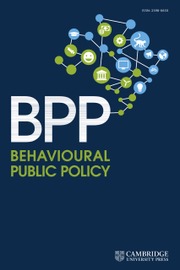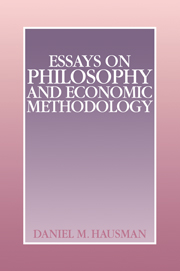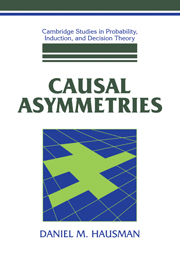The Philosophy of Economics
This is a comprehensive anthology of works concerning the nature of economics as a science, including classic texts and essays exploring specific branches and schools of economics. Apart from the classics, most of the selections in the third edition are new, as are the introduction and bibliography. No other anthology spans the whole field and offers a comprehensive introduction to questions about economic methodology.
- Brings together both historical and contemporary selections
- Edited by a leading philosopher of economics
- Represents both defenses and challenges to the mainstream
Product details
December 2007Paperback
9780521709842
536 pages
229 × 152 × 30 mm
0.78kg
1 table
Available
Table of Contents
- Part I. Classic Discussions:
- 1. On the definition and method of political economy John Stuart Mill
- 2. Objectivity and understanding in economics Max Weber
- 3. The nature and significance of economic science Lionel Robbins
- 4. Economics and human action Frank Knight
- 5. Philosophical foundations of economics: three texts Karl Marx
- 6. The limitations of marginal utility Thorstein Veblen
- Part II. Positivist and Popperian Views:
- 7. The methodology of positive economics Milton Friedman
- 8. Testability and approximation Herbert Simon
- 9. Why look under the hood? Daniel M. Hausman
- 10. Popper and Lakatos in economic methodology D. Wade Hands
- Part III. Ideology and Normative Economics:
- 11. Science and ideology Joseph Schumpeter
- 12. Welfare propositions of economics and interpersonal comparisons of utility Nicholas Kaldor
- 13. The philosophical foundations of mainstream normative economics Daniel M. Hausman and Michael S. McPherson
- 14. Why is cost-benefit analysis so controversial? Robert Frank
- 15. Capability and well-being Amartya Sen
- Part IV. Branches and Schools of Economics and their Methodological Problems:
- 16. Econometrics as observation: the Lucas critique and the nature of econometric inference Kevin Hoover
- 17. Does macroeconomics need microfoundations? Kevin Hoover
- 18. Economics in the laboratory Vernon Smith
- 19. Neuroeconomics: using neuroscience to make economic predictions Colin F. Camerer
- 20. The market as a creative process James M. Buchanan and Viktor J. Vanberg
- 21. What is the essence of institutional economics? Geoffrey Hodgson
- Part V. New Directions in Economic Methodology:
- 22. The rhetoric of this economics Deirdre McCloskey
- 23. Realism Uskali Mäki
- 24. What has realism got to do with it? Tony Lawson
- 25. Feminism and economics Julie Nelson
- 26. Credible worlds: the status of theoretical models in economics Robert Sugden.

